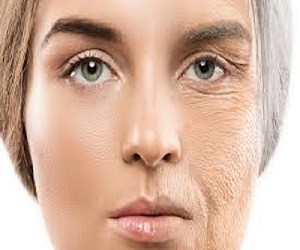Collagen is a crucial protein in our bodies, often hailed as the secret to youthful and firm skin. As we age, collagen production naturally declines, leading to wrinkles, sagging, and a loss of elasticity. In this article, we’ll explore the benefits of collagen for the skin, how to boost collagen production, and the best practices for incorporating collagen into your skincare routine.
What is Collagen?
Collagen is the most abundant protein in the human body, making up about 75-80% of your skin. It provides structure, strength, and elasticity. Collagen fibers form a network that supports the skin, keeping it firm and smooth. There are at least 16 types of collagen, but the majority in the human body are types I, II, and III. Collagen production starts to decline in our mid-20s, and external factors like UV exposure, smoking, and poor diet can accelerate this process.
How to Boost Collagen Production
- Healthy Diet: Eating foods rich in vitamins and minerals supports collagen synthesis. Include vitamin C-rich fruits, leafy greens, and protein-rich foods in your diet. Vitamin C is essential for collagen production as it helps stabilize the collagen molecule. Foods high in antioxidants, like berries and nuts, protect against collagen breakdown.
- Collagen Supplements: Collagen peptides and powders can be ingested to increase collagen levels in the skin. Studies have shown that these supplements can improve skin elasticity, hydration, and dermal collagen density. Hydrolyzed collagen is easier for the body to absorb and use.
- Topical Treatments: Skincare products containing retinoids, vitamin C, and peptides can stimulate collagen production. Retinoids increase cell turnover and collagen synthesis, while vitamin C is a powerful antioxidant that protects and stimulates collagen. Peptides signal the skin to produce more collagen.
- Hydration: Drink plenty of water to keep your skin hydrated and support collagen function. Dehydrated skin can lead to a breakdown in collagen fibers and reduced skin elasticity.
- Sun Protection: UV rays break down collagen, so using a broad-spectrum sunscreen is essential to protect your skin. Regular use of sunscreen prevents UV-induced collagen degradation and promotes healthier skin in the long term.
Benefits of Collagen for Skin

Reduces Wrinkles and Fine Lines
Collagen is fundamental in maintaining the skin’s elasticity and reducing the appearance of wrinkles and fine lines. When collagen levels are high, the skin looks plump, firm, and youthful, as the collagen fibers support the skin’s structure. However, as we age, collagen production slows down, and existing collagen breaks down, leading to a loss of firmness. This decrease in collagen causes the skin to sag, making wrinkles and fine lines more prominent. Regularly boosting collagen levels helps to maintain skin firmness and smoothness, effectively diminishing the visible signs of aging.
Improves Skin Hydration
Collagen significantly contributes to skin hydration by helping the skin retain moisture. Hydrated skin appears healthier, more vibrant, and plumper. Collagen has a remarkable ability to bind water molecules, which is essential for maintaining skin moisture. When the skin is well-hydrated, it not only looks more youthful but also functions better, as hydration is critical for various skin processes. Adequate collagen levels ensure that the skin retains sufficient moisture, preventing dryness and promoting a radiant complexion.


Enhances Skin Elasticity
Elasticity is crucial for the skin to bounce back after being stretched, and collagen fibers play a key role in this property. With ample collagen, the skin remains firm, resilient, and less prone to sagging. Collagen provides the structural support needed to keep the skin tight and elastic. This support is vital for maintaining the skin’s overall texture and tone. Without enough collagen, the skin loses its ability to return to its original shape, leading to sagging and a loss of youthful appearance. Enhancing collagen production ensures that the skin remains supple and firm.
Boosts Skin Smoothness
Regular collagen production ensures that the skin remains smooth and supple. Collagen fills in the gaps between skin cells, providing a smooth and even surface. This protein helps maintain a fine-textured skin appearance by reducing the roughness and irregularities often associated with aging skin. A consistent supply of collagen keeps the skin’s surface uniform and soft, enhancing its overall look and feel. With sufficient collagen, the skin is better able to maintain a youthful, smooth, and healthy appearance.


Improves Dark Spots
Collagen plays a pivotal role in addressing dark spots, also known as hyperpigmentation, by fostering skin regeneration and diminishing inflammation. Through its ability to stimulate the production of new skin cells, collagen aids in shedding old, melanin-rich cells, thereby reducing the appearance of dark spots and promoting a more uniform complexion. By incorporating collagen-boosting practices into your skincare routine, such as using products enriched with collagen-stimulating ingredients like retinoids and vitamin C, you can effectively diminish the intensity and size of dark spots, unveiling a brighter and more radiant skin tone.
Best Practices for Using Collagen
- Consistency: Use collagen-boosting products regularly for the best results. Collagen benefits accrue over time, so a consistent routine is key.
- Combine Treatments: Pair collagen supplements with topical treatments for a comprehensive approach. Using both methods maximizes the benefits by addressing collagen from the inside and outside.
- Healthy Lifestyle: Avoid smoking and excessive alcohol consumption, as they can deplete collagen levels. Both habits increase the production of free radicals, which break down collagen and elastin fibers.
- Professional Treatments: Consider professional treatments like microneedling, laser therapy, and chemical peels that can boost collagen production. These treatments create controlled damage to the skin, triggering a healing response that increases collagen production.
Potential Side Effects of Collagen for Skin
While collagen supplements are generally considered safe for most individuals, it’s important to be aware of potential side effects associated with their consumption. Here are some side effects to consider:
Excessive Intake:
Ingesting too much collagen may lead to the following side effects:
- Upset stomach
- Diarrhea
- Nausea
- Headache
Inadequate Intake:
Conversely, insufficient collagen intake in your diet may result in the following symptoms:
- Increased wrinkles and sagging skin
- Joint pain and stiffness
- Weak hair and nails